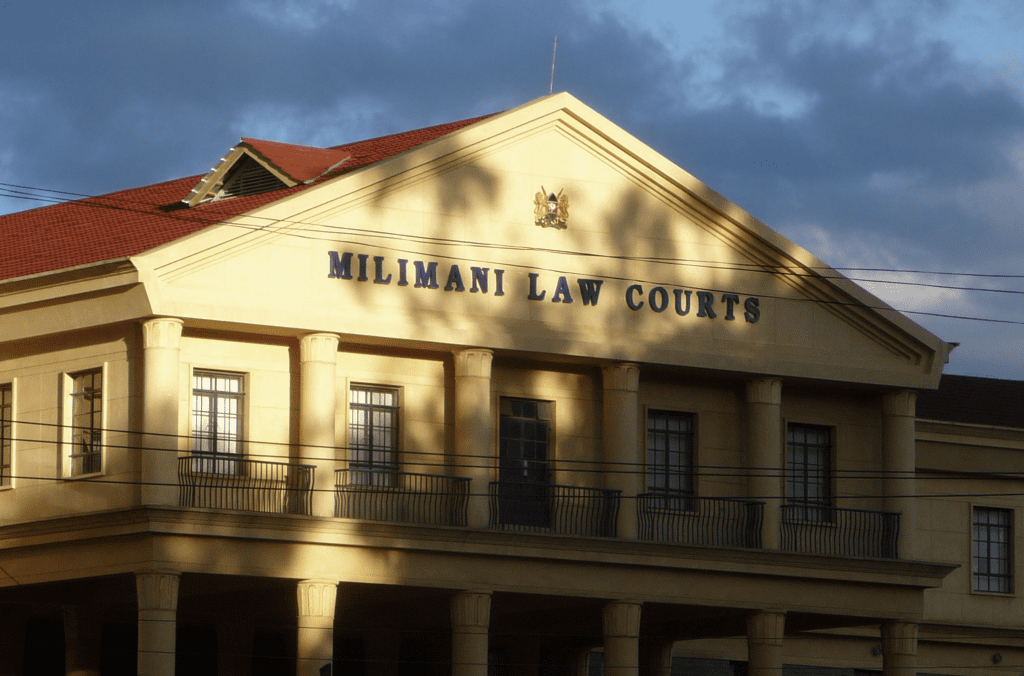Media Defence welcomes the verdict of the High Court in Nakuru, striking down sections of the Kenyan Penal Code which criminalise subversion, citing them as relics of colonial oppression that curtail freedom of expression.
Justice Samwel Mohochi, delivering the judgment, asserted that these provisions were overly broad and vague, stifling dissent rather than serving any legitimate purpose. He emphasised that they violate the right to freedom of expression enshrined in the Kenyan Constitution.
The offence of subversion was introduced in Kenya during the state-of-emergency in the 1960’s, to stifle dissent against the British Colonial Government. Subversion charges have since been employed by authorities to target individuals expressing dissenting political views or engaging in activities perceived as challenging the government’s authority. These charges were punishable by up to seven years imprisonment.
The legal petition was brought by a coalition of human rights activists and professional bodies, including the Katiba Institute, Law Society of Kenya, Kenya Union of Journalists, and Kenya Human Rights Commission, among others. They argued that the subversion laws unjustly penalise political dissent, a fundamental aspect of democracy.
The case was prompted by the arrest of Joshua Otieno Ayika, a Kenyan lawyer, who faced charges of subversive activities after a tweet on 16th July 2022 in which he predicted a government takeover by the military.
Cases like that of Ayika, highlight the arbitrary application of these laws to quell dissenting voices. Justice Mohochi’s ruling deems sections 77(1) and (3) of the Penal Code unconstitutional. Additionally, but also underscores the importance of safeguarding freedom of expression in a modern, democratic society.
“One beautiful thing about oppressive regimes…” Ochiel J Dudley, one of the lawyers representing the coalition, told Media Defence, “is that we can get great decisions if the courts are brave and litigants seize the moment. Some of the most frequently cited constitutional decisions in both Uganda and Kenya have come from attempts by the state to oppress citizens”.
This decision marks a significant step towards upholding democratic values and dismantling oppressive remnants of colonial rule. Media Defence is proud to have provided both legal and financial support in this case.
If you face legal threats because of your journalism, we can help.
Recent News
UN Rapporteurs Call for Protection of Brazilian Journalist Schirlei Alves
UN Rapporteurs Call for Protection of Brazilian Journalist Schirlei Alves Amid Defamation Charges Stemming from Rape Trial Coverage A letter dispatched by UN rapporteurs to the Brazilian Government calls for protective measures for women journalists covering cases of sexual crimes. The letter also denounces the conviction of Brazilian investigative journalist and women’s rights defender, Schirlei […]
Convite à apresentação de candidaturas: Cirurgia de litígio em português na África Subsariana
Cirurgia de litígio em português na África Subsariana Aplique aqui 23 a 25 de julho de 2024 em Nairobi, Quénia Prazo: 3 de maio A Media Defence está a convidar advogados sediados na África Subsariana que falem português a candidatarem-se a participar numa próxima cirurgia de litígio sobre o direito à liberdade de expressão e […]
Doxing, Deepfakes and Digital Inclusion: Discussing Women’s Rights and Online Safety with Lilian Olivia Orero
Lilian Olivia Orero is an Advocate of the High Court of Kenya and champion of women’s digital rights. She recently served as the youngest UN Women Civil Society Regional Reference Group Member participating in the Spotlight Initiative Africa Regional Program – a programme aimed at ending violence against women and girls. She has been part […]



